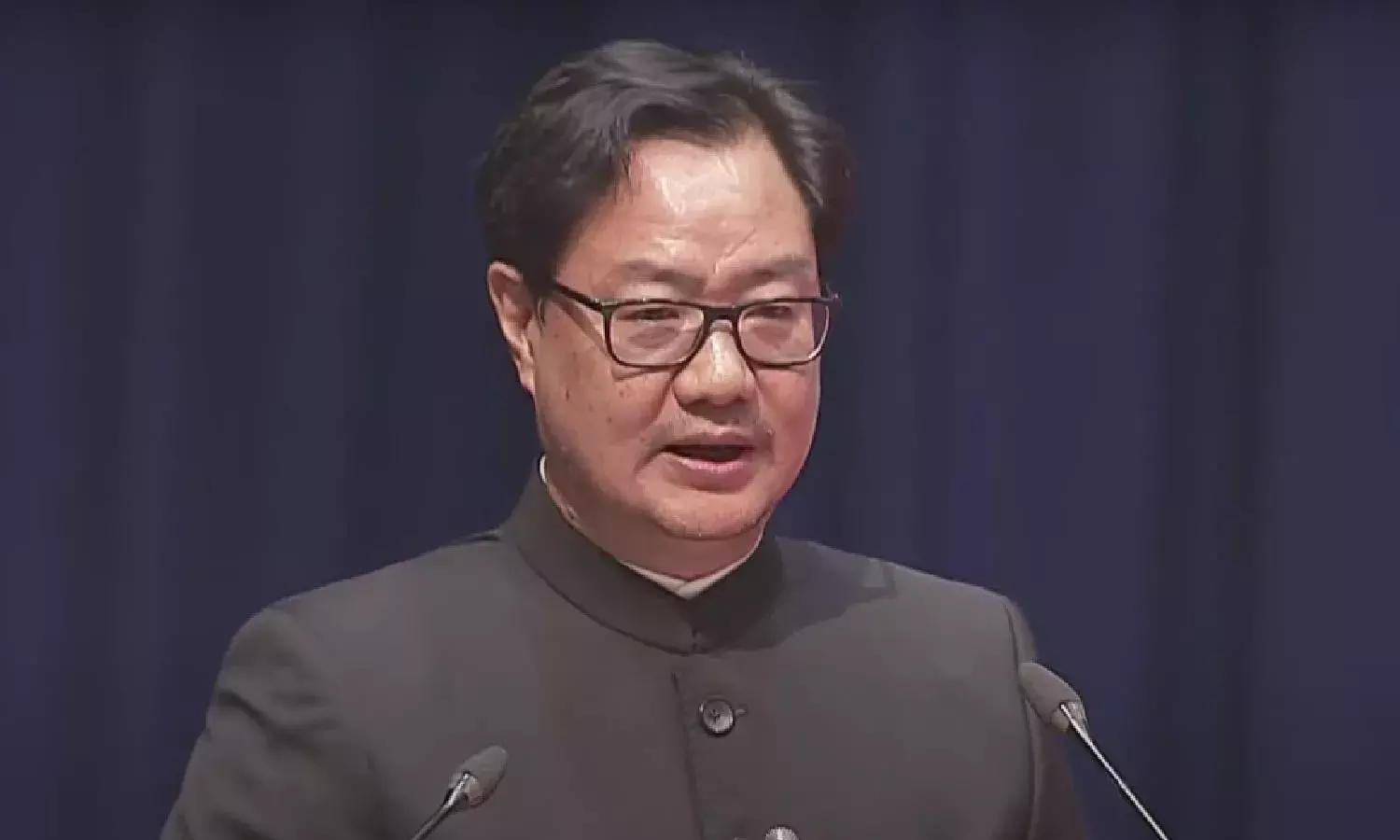Center Has Sent Suggestions For Supplementing MoP For Appointment Of Judges: Law Minister

The Union Law & Justice Minister Kiren Rijiju has said in answer to a question in the Rajya Sabha yesterday that the Center has sent suggestions for supplementing the Memorandum of Procedure (MoP) for the appointment of Judges to the High Courts and Supreme Court.
The Minister was answering a question by Member of Parliament Binoy Viswam. His question was whether the Government intends to change the current collegium system for appointing judges to the Supreme Court and High Courts.
"Representations from diverse sources on lack of transparency, objectivity and social diversity in the collegium system of appointment of judges to the Constitutional Courts are received from time to time with the request to improve this system of appointment of judges", Minister said in the written response.
He said that as on December 16, 154 proposals received from High Courts are at various stages of processing between the Government and the Supreme Court Collegium.
The Minister answered a question about delays in the transfer and appointment of judges by stating that "Filling up of vacancies in the High Courts is a continuous, integrated and collaborative process between the Executive and the Judiciary. Transfer and appointments of Judges of the High Courtsrequire consultation and approval from various constitutional authorities both at state and central level. While every effort is made to fill up the existing vacancies expeditiously, vacancies of Judges in High Courts do keep on arising on account of retirement, resignation or elevation of Judges and also due to increase in the strength of Judges".
While answering a question by MP Amee Yajnik, the Minister said that though the Constitution does not provide for reservation for any caste or class of persons, the Government has been requesting Chief Justices of High Courts to ensure social diversity in the appointment of judges.
"Appointment of Judges of the Supreme Court and High Courts is made under Articles 124, 217 and 224 of the Constitution of India, which do not provide for reservation for any caste or class of persons. However, the Government has been requesting the Chief Justices of High Courts that while sending proposals for appointment of Judges, due consideration be given to suitable candidates belonging to Scheduled Castes, Scheduled Tribes, Other Backward Classes, minorities and Women to ensure social diversity in appointment of Judges in High Courts", the Minister said.
The Minister has also informed the Parliament that as per information provided by the High Courts, 242 Fast Track Courts have been setup up after 2017. 596 such courts were existing as on December 31, 2017, which has increased to 838 as on October 31, 2022.
The Parliament was informed by the Minister that the Registry of the Supreme Court has compiled data on the status of judicial infrastructure and court amenities, as per which 41% of the district courts had a studio-based video conferencing facility and only 14 per cent of district court complexes had video linkages with medical officers and 38 per cent had video linkages with jails.

